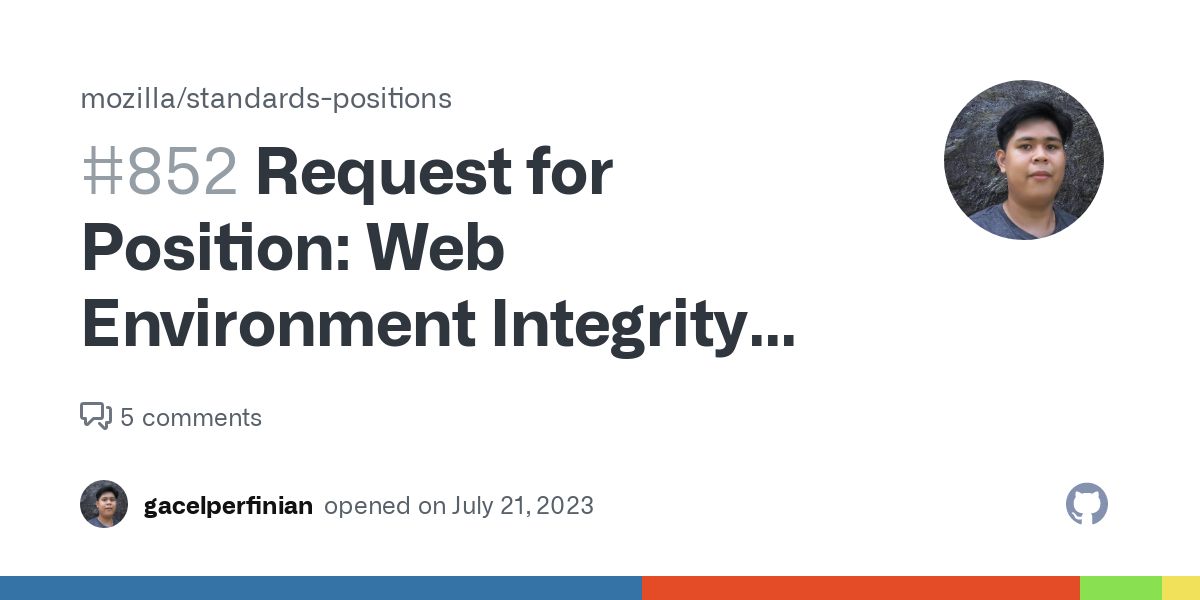Request for Position: Web Environment Integrity API · Issue #852 · mozilla/standards-positions
github.comRequest for Mozilla Position on an Emerging Web Specification Specification Title: Web Environment Integrity API Specification or proposal URL (if available): https://rupertbenwiser.github.io/Web-E...
You must log in or register to comment.
A place to discuss privacy and freedom in the digital world.
Privacy has become a very important issue in modern society, with companies and governments constantly abusing their power, more and more people are waking up to the importance of digital privacy.
In this community everyone is welcome to post links and discuss topics related to privacy.
Some Rules
- Posting a link to a website containing tracking isn’t great, if contents of the website are behind a paywall maybe copy them into the post
- Don’t promote proprietary software
- Try to keep things on topic
- If you have a question, please try searching for previous discussions, maybe it has already been answered
- Reposts are fine, but should have at least a couple of weeks in between so that the post can reach a new audience
- Be nice :)
Related communities
much thanks to @gary_host_laptop for the logo design :)
- 0 users online
- 108 users / day
- 435 users / week
- 1.32K users / month
- 4.54K users / 6 months
- 1 subscriber
- 4.56K Posts
- 115K Comments
- Modlog







It really wouldn’t
If the point is so websites can trust that you’re a person then the captchas aren’t needed.
I don’t even trust that I’m a person sometimes.
But how can it trust you’re a person when it just confirms that you’re running an in-modified site. It takes a hash of the site, then make sure your local view of the website matches that hash.
This disables add blockers, custom css, etc; but I don’t see how this standard would prevent bots…
It’s not just checking that you’re running in an un-modified OS, that’s just one part of it.
It doesn’t disable ad-blockers or custom css btw. And anyway, websites can already detect when you’re using an ad-blocker and not show you their content. This isn’t needed for that.